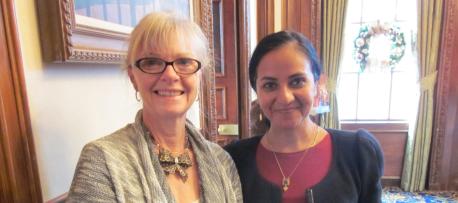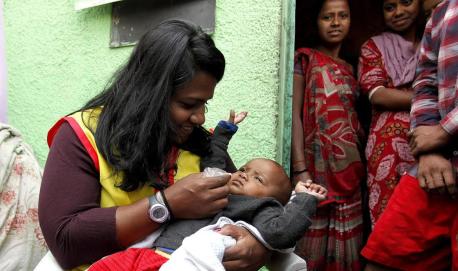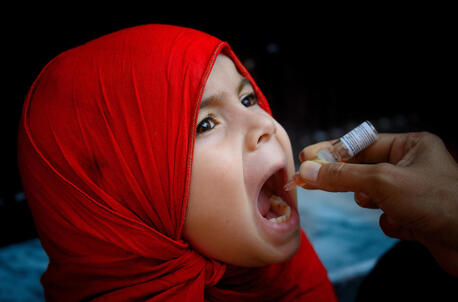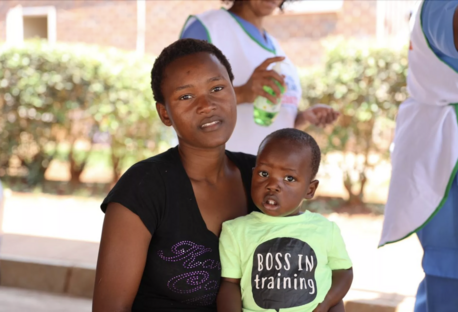
Children First UNICEF Speaker Series with Anjali Kaur
On January 9, 2015 the New England Regional Office hosted the second event in our 2014-2015 annual speaker series. Now in its 13th year, this speaker series attracts women and men from the professional and philanthropic communities in Boston to an intimate event with a brief presentation by the featured speaker followed by an enriching Q & A session.
We were honored to host Anjali Kaur as our featured speaker, an Advocacy and Resource Mobilization Specialist for UNICEF’s Global Polio Program. A Fulbright Scholar with a Bachelor’s and Master’s degree from Johns Hopkins, Anjali has worked to eradicate polio with organizations around the world, from the World Bank to the Earth Institute. She focuses on health systems development, behavior change communication, advocacy and resource mobilization, tools that are all critically important to the success of the UNICEF Global Polio Eradication Initiative, one of the largest evidence-based global health projects ever undertaken.
The world is closer than ever to eradicating polio. India was officially declared polio free last year—a major achievement in global public health. More than 10 million volunteers around the world have participated in the campaign against polio, including going door-to-door to make sure that children in even the most remote parts of the world are vaccinated. That hard work has paid off. The annual number of polio cases has been slashed by 99% over the last 25 years and the campaign has prevented 10 million childhood disabilities since 1988. However, success will not be attained until UNICEF and partners have reached every last child.
UNICEF and partners such as Rotary International, the World Health Organization, and the Center for Disease Control and Prevention, are building sustainable health systems throughout the world. In order to trace and track outbreaks of polio, and to know who has received their drops of vaccine, community health workers, doctors, policy makers, NGOs and governments work together to achieve progress.
Anjali’s presentation urged attendees to recognize that the polio campaign is bigger than a disease; it is also a means to strengthening health systems and increasing access in the most difficult to reach places. When this ambitious goal to eradicate polio is reached, UNICEF and partners will prove to the world that there are no obstacles too great to justify a failure to reach every child with basic healthcare and human rights.


